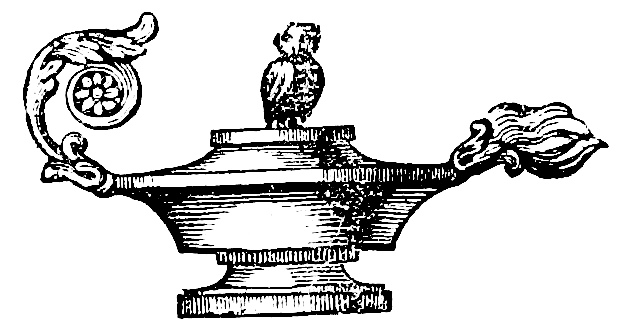|
|
| Oct/Nov 2016 • Nonfiction |
|
|
| Oct/Nov 2016 • Nonfiction |

Since the 2006 publication of The God Delusion by Richard Dawkins, there has been a massively renewed interest in whether God exists, whether humans have free will, whether there is an afterlife, and whether artificial intelligence is attainable any time soon. This influx of interest, this sudden fire of controversy, has meant a staggering success for Youtube as well as an onslaught of atheist/theist debates. It has made people rich and has created a kind of thinking republic of the world. One would think poetry would have cashed in on this, but little seems to have changed.
While it is true that isolated poems like John Hennessy's "Convenience Store Aquinas," as published in the March 2015 issue of Poetry Magazine, have begun to address concerns over whether the business of living is an accident, a happy coincidence, a mistake, an emergent property of God, or something there is no word for, I have yet to read more than one or two contemporary poems of vital significance that comment on what any of this existence forebodes. Yes, all poems are about just that, but few of them tackle the issue in a way that directly confronts the kinds of dialogues playing out all over the world. None of them debates the issue relentlessly and exactly enough. None contends for more than consolation, at least not to my satisfaction. Is Richard Dawkins right to suggest the universe ultimately has only blind, pitiless indifference to offer us? What I find to be most curious is that $200,000,000.00 can't make a difference.* It has finally been proven that all the money in the world can't make poetry relevant. What does this say about human nature? About poetry?
I'm not suggesting poetry that moves me to weeping or laughing is anything less than divine. I'm not implying consolation is not great in its own terms. I'm saying that lyric poetry is bigger than any of those things. In my poem "Such a Bright Future," I begin by saying, "If freedom means anything / it means one thing. Be free from want / then do what you want." Those lines are mere attempts. Lyric poetry is more than just emotion. Narrative poetry is more than just story. I want to see more eternal poems like "The Lake Isle of Innisfree," but I also want to see more poems like "The Man With The Blue Guitar."
Thinking for its own sake is thinking for the sake of the world as well. One promising paradigm might be Metamodernism. Though I'm not sure terms need to be defined that neatly. Whatever the terms and conditions of poetry, they need not imitate nature. There is no need to believe poetry is subject to entropy. There is no need to see gravity as the opposite of levity, for that matter. Some of the best poetry is that in which sanity is called into question: either the sanity of the poet, the sanity of the reader, or the very idea of sanity altogether. Reconciling opposites—which is one of the major themes of Metamodernism—is important. So is drawing a fine line between two related things. Poetry is a kind of logic. "I'll write my story / so deep in myself / no one will hear it / in my voice."
The end of thinking may be either tragedy or joy. One may realize in his thinking a zenith or a nadir—but at least he will know where he stands. This is usually the case. Thinking clarifies one's life, but it can only be done within a context. It can only be managed within a need. If there is no need there is no need to think. Poets must bring to mind the need that never alters its course, the star which all the other planets revolve around. How do I know what I need? If I'm hungry I need food. If I'm thirsty I need water. Poetry cannot live without the one desire we all have in our natural state, which neither dissipates nor dissolves. Remind the reader of that, but do it in a way that accesses the soul by means of the brain, just as Emily Dickinson did.
* This is the estimated amount of money the Poetry Foundation has acquired and accrued after the Ruth Lily bequest.